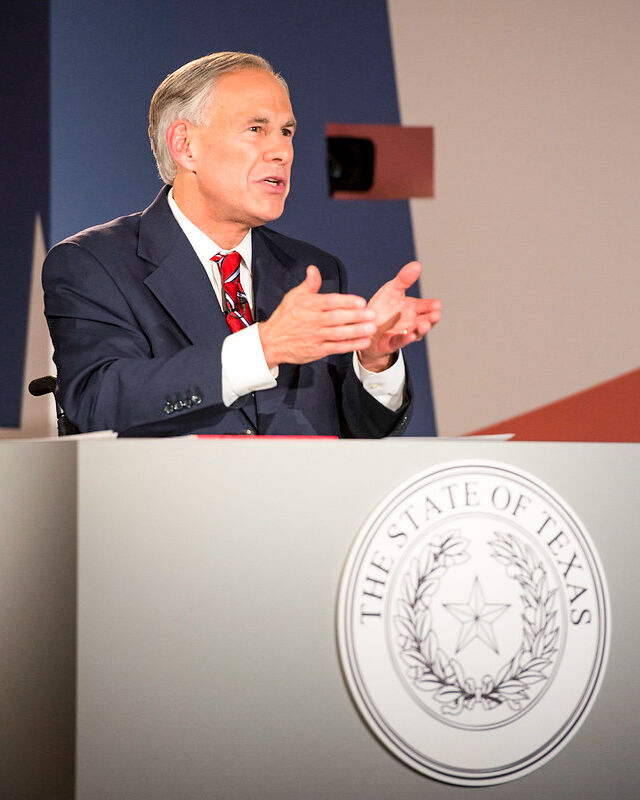Two voting bills introduced in Texas will impose severe restrictions on voting rights and procedures if passed, following the passage of a similar bill in Florida.
The first bill, Senate Bill Seven, contains various limits on voting hours. The bill would set a 12-hour cap on early voting hours in the last week of early voting, inside the window of 6 a.m to 9 p.m. Counties with 30,000 or more residents have to operate for at least 12 hours in the last week of early voting, a change from the current law, which specifies that the population has to be 100,000 or more. Voting booths would be barred from opening for 24 hours.
Drive-thru voting will be prohibited, as early voting would have to take place inside a building. Drive-thru voting was a tactic used by Harris County in the 2020 general election and a 2020 summer runoff. It became popular in Harris County, with one in 10 early voters (who did not vote by mail) used drive-thru voting to vote. It is estimated by some democrats that more than half of drive-thru voters were Black, Latino, or Asian American.
The law would mandate that counties with a population of at least one million use a formula for the distribution of polling places based on voter registration. This could decrease the number of polling places in districts represented by Democrats, which tend to be areas with a higher number of voters of color. The bill would also ban local election officials from sending applications for mail-in ballots to voters, regardless if they qualify for it.
The second bill, House Bill Six, also includes restrictions on the distribution of mail-in voting applications. Voter assistants would need to share information on the voter, specifically why a voter requires the assistance, regardless of the reason. Partisan poll watchers would be offered protection from the bill by its outlining of criminal liability for election workers in their treatment of the poll watchers.
The House Elections Committee voted to replace Senate Bill Seven’s language with that of House Bill Six. The two chambers would have to see which bill and which restrictions would be put on a final version and signed into law by Gov. Greg Abbott. Abbott signaled support for the voting legislation.
Two letters have been sent out by various corporations and business executives opposing voter restrictions and the passage of these voting bills. The first letter, created by HP, Microsoft, Unilever, Salesforce, Patagonia, Sodexo, and other local companies, does not criticize the two voting bills explicitly but states their opposition to “any changes that would restrict eligible voters’ access to the ballot.”
The second letter, signed by 100 executives from Houston, explicitly criticizes the two bills and accuses them of voter suppression.
Criminal justice groups in Texas like MOVE Texas, Progress Texas, ACLU Texas, and the Texas Criminal Justice Coalition created a letter addressed to Abbott, Lt. Gov. Dan Patrick, and House Speaker Dade Phelan, out of concern of the bills’ criminal punishments that could mainly affect people of color. According to a study of election bills conducted by 26 organizations, almost half of all punishments would affect poll workers and election officials. House Bill 6 would create the most criminal penalties out of any House bill, and Senate Bill 7 would add the most out of any Senate bill.
In response to criticisms over voter suppression, Lt. Gov. Dan Patrick said that Senate Bill Seven is about “voter security” and is “tired of the lies and the nest of liars who continue to repeat them.”
A similar bill was recently passed in the House and Senate chambers in Florida. Florida Governor Ron DeSantis signed the bill into law on Thursday. The bill will limit the collection and drop-off of ballots. The bill mandates that a person can only possess their own ballot, along with one belonging to an immediate family member and two others. This restriction will impact low-income voters and voters of color, as it does not accommodate immigrant family households that usually include extended family members.
The Florida bill will ban groups from handing out items to voters at a polling station “with the intent to influence.” Partisan poll watchers will also be protected.
New voter ID requirements will be issued for mail-in voting, and non-profit and private funds will not be allowed to be used to conduct elections. The bill will also restrict drop boxes, which were used by 1.5 million voters in Florida in the 2020 general election.
Both bills come in the midst of a wave in voting bills created after the 2020 election. As of March 24, 361 restrictive voter bills were introduced in 47 states, according to the Brennan Center for Justice.

